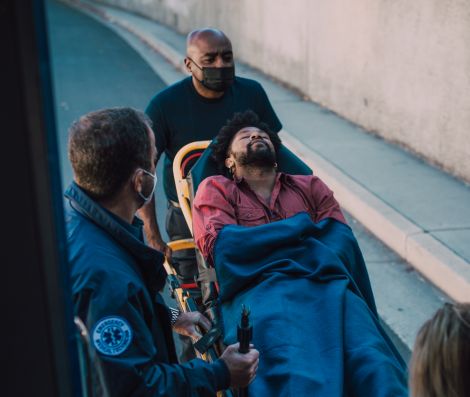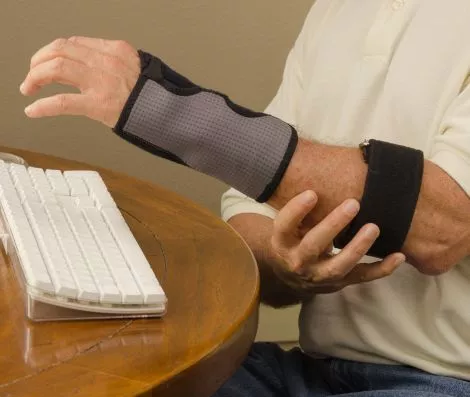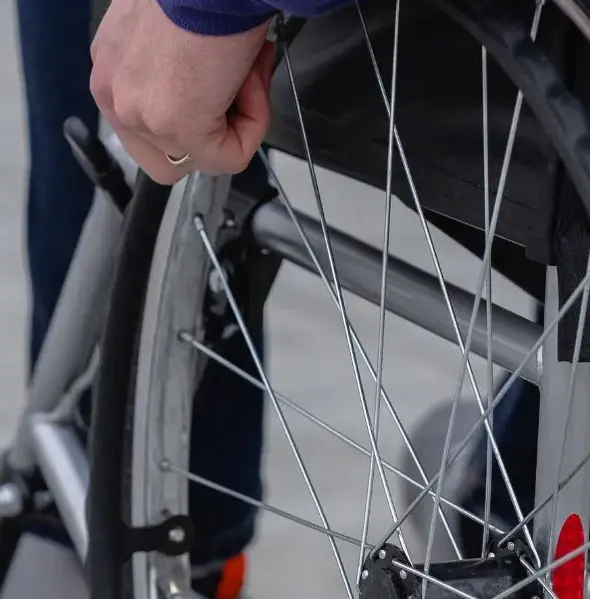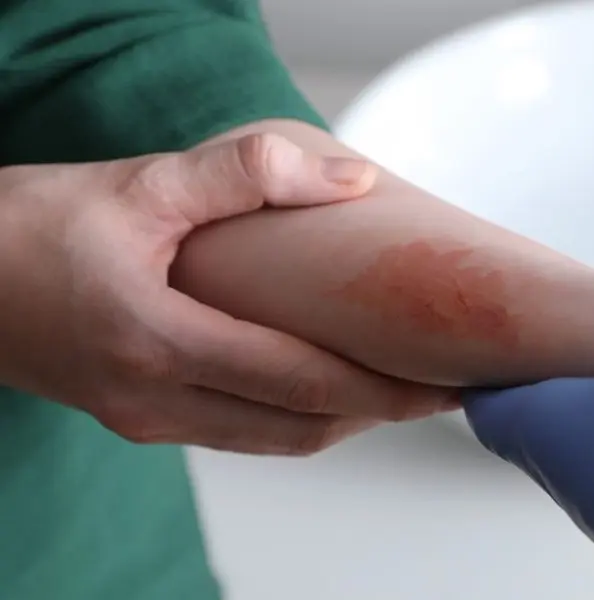Charlotte Office 704-815-6055
Asheville Office 828-252-2852
Charlotte Repetitive Stress Injury Lawyer
Charlotte Repetitive Stress Injury Attorney
Around one in 10 Americans have reported experiencing a repetitive stress injury (RSI). Excessive strain and stress can lead to certain parts of your body wearing down. RSI can lead to carpal tunnel syndrome, tendonitis, and other painful afflictions. For many adults, these repetitive actions are the result of normal work routines. Recovering from RSI often requires the legal services of a Charlotte repetitive stress injury lawyer.
If your injuries and RSI symptoms result from repeated motions at the workplace, you could be entitled to monetary compensation. Your Charlotte repetitive stress injury lawyer can help you recoup medical expenses and more by filing a complaint against your employer.
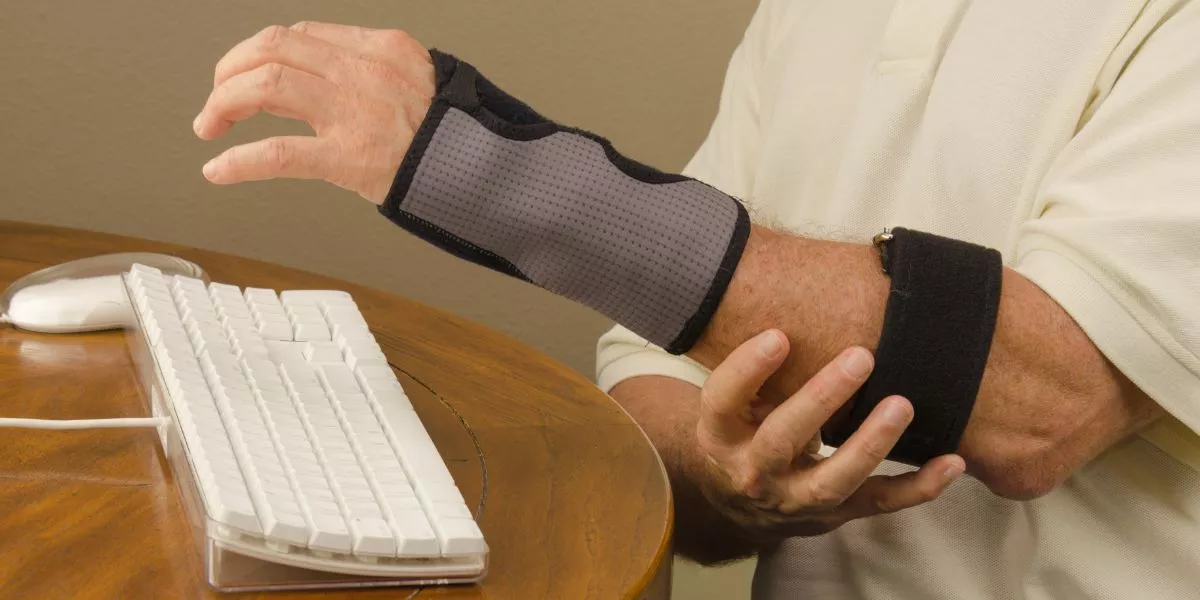
Common Causes of Repetitive Stress Injury
Repetitive stress injuries, also known as repetitive strain injuries, are an umbrella term for a wide range of conditions that can result from repetitive movements over a long period of time. RSI can affect the joints, nerves, muscles, and tendons, and the resulting discomfort and pain range from mild to severe. Numbness and limited mobility are also common symptoms.
While hobbies and recreational activities like tennis can lead to repetitive stress injuries, one common cause of this condition is work-related. Factory line work, typing, working with vibrating tools, and even common office tasks can lead to RSI.
The injuries tend to manifest near joints in the body. Common areas of the body that can be affected by RSI include:
- Fingers
- Thumbs
- Elbows
- Wrists
- Arms
- Knees
- Shoulders
Repetitive stress injuries require medical treatments, which can be quite costly. Many workers who develop RSI have to claim workers’ compensation while they recover.
Can I Be Compensated for RSI?
Yes, you can be compensated for RSI in Charlotte, North Carolina. Any injury that is caused by work-related activities could entitle the injured party to financial compensation. Your Charlotte repetitive stress injury lawyer can assess your injuries. In many cases, any measurable signs of RSI can lead to the filing of a personal injury lawsuit that seeks compensation for the plaintiff.
Proving Work-Related RSI
One important step is proving that the injury is work-related. Since many adults spend 40 hours or more at work, this can be straightforward to prove. Countless hours typing away can lead to strain on the tendons in the worker’s hands and wrists. Any repetitive motion can lead to tenosynovitis, bursitis, neck injuries, or other injuries and conditions.
Repetitive motion injuries can have long-lasting symptoms. It can take years for the symptoms to manifest, and it can take even longer to fully treat those injuries. Many workers worry about their job security and income while they recover, which is why seeking legal counsel is critical.
There are generally two routes that your attorney can take. One is to file a third-party claim or a Charlotte workers’ compensation claim. Determining which option is right for you requires careful consideration of several factors and trusted legal counsel. One of the jobs of an experienced personal injury attorney is to help clients understand their legal rights and court-related options.
Not all businesses in North Carolina, for example, are required to carry workers’ compensation insurance. The North Carolina Workers’ Compensation Act only requires companies of a certain size to carry those policies.
Third-party claims are an option any time a worker is injured due to the negligence of an employer. Anyone who owns a business is responsible for the safety and well-being of their workers while those employees are on the clock or on the business’ property. A third-party claim, also known as a personal injury claim, can help the plaintiff seek compensation for costs related to therapy, rehabilitation, loss of income, and even pain and suffering.
Workers’ Compensation Claims
Filing a workers’ compensation claim does not require that the worker prove negligence. They simply need to show that they were injured on the job. A civil lawsuit seeking monetary damages would need to show a preponderance of evidence that the employer or someone working at the place of work was culpable in causing the injury.
One example would be a boss who ignored repeated requests for reasonable accommodations by a worker. If those requests for accommodations were ignored and the worker became injured as a result of that, the injured worker could have grounds for seeking compensation.
How a Personal Injury Lawsuit Works
The first step when filing a personal injury lawsuit in Charlotte is to find an experienced attorney who has handled cases similar to yours. Read their past reviews to see what past clients have said about them.
Once the attorney assesses the merits of your case, the first step can include the drafting and sending of a demand letter. This legal document outlines the extent of your injuries and the amount of monetary compensation you are seeking. The defendant may pay the amount, ignore the letter, or reply to discuss the letter.
If the respondent does not pay the amount requested, your attorney will file a lawsuit in the same county where the defendant lives and works. The defendant then has a set period of time to reply.
The next phase is called discovery and involves the trading of evidence from both parties. Based on the evidence, the defendant may choose to settle. If they do not, the case will go to trial, where a judge or jury decides which party is at fault and what monetary compensation is appropriate.
The settlement offer or jury award will take into consideration the extent of your injuries, the potential for future lost work, and the degree of negligence on the part of the defendant.
Treatment Options for RSI
Treatments for RSI can be costly. Your workers’ compensation claim or third-party claim will seek reimbursement for any out-of-pocket expenses tied to your diagnosis or treatment. The first step when diagnosing a repetitive stress injury involves a physical exam.
Your doctor will inquire into your symptoms and the actions that may have caused the injury. These records could prove useful if you chose to file a civil lawsuit against your employer or the individual whose negligence led to your injuries.
Diagnostic imaging is commonly used to confirm the location and extent of the injury. There are often physical symptoms that can be documented through imaging. This could be done using:
- X-rays
- Magnetic resonance imaging (MRI)
- Ultrasound
The treatment is usually determined by the cause of the symptoms and how severe your symptoms are. One of the first steps involves ceasing the activity that is at the root cause of your injury. This will prevent further damage. Most forms of injury will naturally heal once the repetitive motion ceases.
Your doctor may recommend the use of a cold compress to handle swelling. Compression can also help. Elevating the injured limb can reduce swelling. Certain medications like NSAIDs can address pain.
Your doctor may recommend physical therapy. This can help address posture issues that caused the injury. Physical therapy can also improve your strength and flexibility. Lastly, an occupational therapist can identify and address motions and postures that led to your RSI. In extreme cases, surgery may be required to reverse the symptoms of your injury. While you recover, your repetitive stress injury attorney will fight for compensation for your injuries.
FAQs
Q: How Do You Prove Repetitive Strain Injury?
A: You prove repetitive strain injury by working with an experienced attorney who can explain the proper steps to document your injuries. Having proper medical records will be important as your case moves forward. Giving your own testimony will also help you prove a repetitive strain injury. Your attorney will guide you through each step of the process.
Q: How Long Does RSI Take to Heal?
A: Repetitive strain injury can take anywhere from a few weeks to months or even years to fully heal. Having access to proper medical treatments will be critical to your recovery. Your doctor may recommend physical therapy or working with an occupational therapist. Having reliable legal counsel can help you recover in a timely manner.
Q: How Do I Get Rid of RSI?
A: To get rid of RSI, the first step is to consult with a personal injury lawyer. Healing often requires a change in work habits, and not every manager may be amenable to those changes. Having legal representation can help you recover by compelling your managers to acknowledge your injury and provide suitable work conditions to facilitate your recovery.
Q: Is RSI Permanent?
A: RSI may or may not be permanent. Many cases require months, if not years, of treatment. The joints throughout the body are an intricate network of bones, tendons, ligaments, and connective tissue that are very sensitive to damage. The symptoms can take years to manifest, which is one reason why a quick fix is rarely an option for RSI.
Schedule Your Repetitive Stress Injury Consultation Today
No worker should have to worry about losing income due to injuries incurred in the workplace. If your line of work led to a repetitive stress injury, contact the Bridgman Gantt Law Offices today. We have helped many clients claim their rightful compensation either through workers’ compensation or by filing a personal injury claim. To consult with us, contact our office today.
Contact Us Today
Please fill out the form below and we will be in touch soon.
"*" indicates required fields












